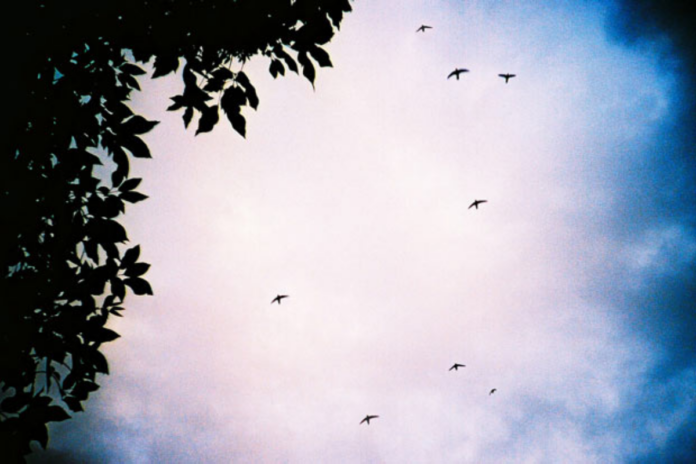Ghania Mouffok’s contribution to the Writing Revolution from Algeria reflects on the country’s history of thwarted uprisings, tinged with fear and longing.
Distrust And Disillusionment With Leadership
A young man expressed to me his concern that ‘they’ will soon impose meters around our necks to measure the air we breathe and charge us for it.
Do not interrupt me. Do not inquire about who ‘they’ are. Because ‘they’ also include ‘them’. ‘They’ and ‘them’ are the terms we use to refer to our inexplicable leaders. This is how we distance them from our destinies and those of our descendants. We associate them with misfortune, and we are aware of this.
Do not interrupt me; I am writing to prevent myself from forgetting. Otherwise, soon I will forget. It was during the winter of 2011, the day after the riots. I no longer remember it was just before or just after spring. But it was before Arabs became celebrities and were celebrated.
We were standing on a street corner in Algiers, not far from Cervantes’ cave, named after the author of Don Quixote, who was enslaved by our ancestors and concealed in the cave, observing the sea through holes in the limestone rocks, awaiting freedom.
Also Read: Cairo, City in Waiting (Egypt)
The Essence Of Algeria Quartiers Populaires
We found ourselves in one of Algeria quartiers populaires, known for their aging infrastructure characterized by creaking windows and crumbling walls, which serve as a canvas for the nation’s memories.
These neighborhoods are neither old enough to warrant a museum nor young enough to exude boredom. They are the kind of places where you can still enjoy a proper coffee, immersed in the ambiance of a commedia dell’arte, without the exorbitant price tag of a Colombian espresso.
I had approached the young man to inquire about his anger. “Why are you setting your neighborhood ablaze? Why are you instilling fear in your mother and the bourgeoisie?”
‘I’m like a volcano,’ he said. ‘It’s so I can breathe.’
A Calm Presence Amidst The Aftermath
Despite the recent turmoil, he remained remarkably composed. His gaze swept over the street, now devoid of any traces of the recent fires, yet his body retained the lingering scent of the riots – a combination of powder from tear gas grenades and vinegar used to soothe the eyes of protesters.
He was happy.
“The silver lining of rioting,” he remarked, “is that afterwards, they come and clean up the trash. Typically, they overlook it, and it starts to smell unpleasant.”
He took a drag from his cigarette, exhibiting the enthusiasm and certainty only found in twenty-year-olds, his fingers still pristine white. However, he remained confined to his home, restricted to his small corner of the neighborhood, to his narrow street.
Trapped In The Neighborhood: The Perils Of Rioting
“After a riot,” he explained, “you’re required to stay put, anchoring yourself to the asphalt of your neighborhood, remaining close to home and waiting. Otherwise, they’ll capture you like fish. Can’t you see their wire nets?” he questioned me.
“Look, they’re stretched across every exit from the neighborhood. And if you’re unfortunate enough to encounter the fishermen in boots and helmets, it’s over. Before you even comprehend what’s happening, you’re ensnared in their catch and headed to prison.
In court, the bounty hunters will cite ‘public order offenses’ or ‘criminal damage,’ and instead of freedom, you’re locked in a cage indefinitely. Meanwhile, looking a bit paler than usual, your mother visits every prison, bearing a box of cakes and a packet of tissues as gifts. They treat us like fish in an aquarium slowly being drained of water,” the young man lamented.
Identity And Self-Determination in Algeria
Across the globe, they labeled us as Arabs, proclaiming it to be the Arab Spring, but it felt more like winter.
In Algeria, spring brings swallows, but we are not swallows. We are Arabs, but above all, we are ourselves. When we rise up like waves, we reclaim ownership of our bodies, rediscover our spirits, and answer solely to ourselves.
This is the lesson imparted by that young man, who spoke with poetic fervor about the essence of breathing.
We found ourselves in one of those neighborhoods – a quartier populaire – where each generation inherits, if not history, then at least a glance, a smirk, a shared understanding from father to son.
It unfolds behind closed doors, beyond the Kasbah, where the lives of fathers and sons coalesce, sharing the same mattresses, worn-out pots, and pans.
Enduring Oppression Under A Brutal Regime
The spring may come and go with the changing seasons, but our struggle will persist for as long as those tyrants continue to rule over us, robbing us of our time and pillaging our land.
Like voracious and apathetic serpents, they coil barbed wire around our bodies and spirits. This is how the young man, still bearing the scent of rioting, refers to the enforcers of our dictatorship – as “snakes.” They dwell among us, and while their venom may seem feeble, it is indeed toxic. “They poison us,” the young man declared.
One day, he decides to rebel. Why on that particular day? I cannot say. Armed with stones and matches, he ignites the invisible barriers of his neighborhood. Underneath his own windows, he kindles a Sioux fire.
Reaction Of The Petit-Bourgeois To The Unrest
As we once referred to them, the petit-bourgeois peer through their windows, observing the smoke wafting through the sky, and comment: “Why are they demolishing their own neighborhoods? There’s no need to cause destruction. Oh dear! Look! Look, Belcourt is ablaze! What a disaster… and they haven’t even articulated any demands!”
“However, dear lady,” the young man explained to me, “our demand is simply to breathe, and that alone is significant enough.” Through acts of fire and violence, this demand creates a breathing room, pushing back the oppressive forces to the edges of the neighborhood and reclaiming freedom, albeit on certain nights and days. Suddenly, the exhilaration of time becomes your own.
The Liberation Of Rioting: Embracing Life Without Apology
“Rioting is a form of respiration,” the young man confided in me. “Tell them we won’t apologize for existing.” We shared a laugh, and I departed. However, he remained behind, describing himself as “a caged bird, trapped in endless circles.” Meanwhile, I left with these precious insights, feeling like a thief:
We are more than swallows. Our presence extends beyond just spring; we encompass winter, autumn, and summer as well, for we have endured through many seasons.
And I left.
Algiers, October 2011.
Ghania Mouffok is a journalist residing in Algeria. She serves as a correspondent for TV5 MONDE and hosts the blog Une femme à sa fenêtre on the channel’s website. Additionally, she contributes to various publications, including Le Monde Diplomatique, La Liberté, and Maghreb Émergent. Ghania actively engages in feminist and human rights advocacy, collaborating with the UN and civil society organizations. She has authored several works, including Une autre voie pour l’Algérie (co-authored with Louisa Hanoune, 1995), Être journaliste en Algérie (1996), and Apprendre à vivre ensemble (2011).
Also Read: Wishful Thinking (Saudi Arabia)


